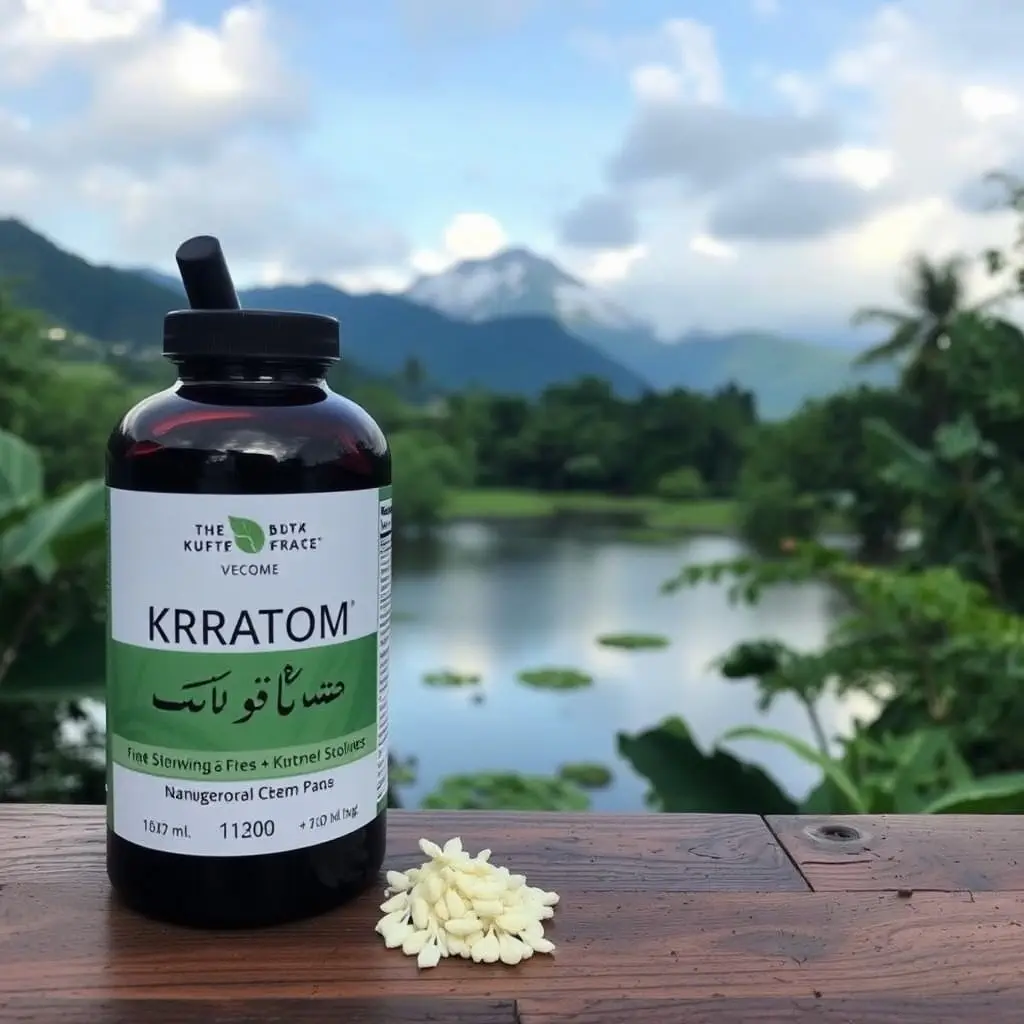The use of kratom, derived from the Mitragyna speciosa tree, in endurance training may offer benefits such as enhanced stamina and pain management for athletes. Its active alkaloids, like mitragynine and 7-hydroxymitragynine, can positively impact energy levels, mood, and resilience, which are critical for endurance sports. However, it's crucial for athletes to be aware of the legal status of kratom when traveling, as its legality varies by region and country; therefore, athletes must verify its status in their destination beforehand to avoid legal issues. Proper dosage and timing, tailored to individual needs and overseen by a healthcare provider or sports nutritionist, are key for optimizing performance benefits while minimizing potential side effects and interactions with other substances. Responsible use of kratom requires adherence to guidelines and an understanding of its legal implications in the context of endurance training. When traveling with kratom, it's essential to comply with transportation regulations, ensuring it is packed in carry-ons and within the original, labeled container, to facilitate smooth passage through security checks and customs. Always prioritize adherence to laws and regulations regarding kratom use and travel for a safe and effective training experience.
Exploring the intersection of natural supplementation and athletic performance, this article delves into how endurance training can be optimized with kratom supplements. As athletes push their limits, understanding the role of kratom in enhancing stamina and recovery is paramount. Moreover, the legalities surrounding kratom use are pivotal for those who travel; “Can you travel with kratom?” is a question that requires clear answers for those looking to maintain their regimen on the move. With a focus on integration into training schedules, this piece offers insights for endurance athletes seeking to elevate their performance while navigating the complexities of kratom’s legal status across different jurisdictions.
- Optimizing Endurance Training Performance with Kratom Supplementation: An Overview
- The Legalities and Practicalities of Traveling with Kratom: Can You Travel with Kratom?
- Integrating Kratom into Your Endurance Training Regimen for Enhanced Results
Optimizing Endurance Training Performance with Kratom Supplementation: An Overview

Integrating kratom supplementation into endurance training regimens may offer performance enhancements for athletes seeking to optimize their stamina and durability during sustained physical activities. Kratom, derived from the Mitragyna speciosa tree, contains alkaloids like mitragynine and 7-hydroxymitragynine, which have been studied for their potential ergogenic effects. These compounds can influence pain perception, mood elevation, and energy levels, all of which are critical factors in endurance sports where mental fortitude meets physical endurance. While the legal status of traveling with kratom varies by country and region, athletes interested in its benefits should be aware of local regulations to ensure compliance when traveling. Proper dosage and timing of kratom intake are crucial for performance enhancement; it’s recommended to consult with a healthcare provider or a sports nutritionist to tailor the supplementation plan to individual needs and training schedules. When used responsibly, kratom can be a valuable addition to an endurance athlete’s regimen, potentially aiding in the management of fatigue and the maintenance of consistent performance throughout long-duration exercises. As with any supplement, it is imperative to adhere to guidelines and maintain awareness of the substance’s potential side effects and interactions with other medications or substances.
The Legalities and Practicalities of Traveling with Kratom: Can You Travel with Kratom?

When considering endurance training with kratom supplements, it’s crucial to navigate the legalities and practicalities associated with traveling with this substance. Kratom, derived from the Mitragyna speciosa tree, has gained popularity among athletes and fitness enthusiasts for its potential to enhance stamina and alleviate pain during rigorous training sessions. However, the legality of carrying kratom across state or country borders can be complex and varies significantly depending on jurisdiction. As of the knowledge cutoff in 2023, some countries have banned kratom due to its psychoactive effects and concerns over its safety, while others regulate it similarly to controlled substances.
Travelers intending to use kratom as part of their endurance training regimen must first verify its legal status in their destination. The practicalities extend beyond mere legality; travelers should be aware that transporting kratom may invite scrutiny at borders or during flights. It’s advisable to carry only what is necessary for the duration of the trip and to keep it in its original, clearly labeled packaging to avoid misunderstandings. Additionally, staying informed about any changes in legislation related to kratom is essential, as laws can evolve rapidly. For those who choose to travel with kratom, doing so responsibly requires careful planning and due diligence to ensure compliance with local regulations and to maintain the integrity of their endurance training routines.
Integrating Kratom into Your Endurance Training Regimen for Enhanced Results

Integrating kratom into your endurance training regimen can be a strategic approach to enhance performance and manage recovery, potentially leading to better overall results. Kratom, derived from the leaves of Mitragyna speciosa, is known for its alkaloid profile that may influence pain perception, stamina, and mood. When considering the use of kratom in an endurance training context, it’s crucial to focus on the strains that are associated with energy and stamina enhancement, such as Maeng Da or White Vein varieties. These strains can potentially support extended physical activity by mitigating fatigue and increasing mental focus. However, it’s imperative to approach kratom use responsibly; adhering to recommended dosages and understanding the legal status of kratom in your jurisdiction is essential. For those who travel as part of their endurance training, knowing whether kratom is permissible in transit or at competition destinations is a practical consideration. Consulting with a healthcare provider or a knowledgeable specialist in this area can provide valuable guidance on how to safely and effectively incorporate kratom into your training routine.
For enhanced results, the integration of kratom should be accompanied by a well-rounded approach to endurance training that includes proper nutrition, hydration, and restorative practices. The timing of kratom intake, relative to exercise sessions, can also influence its efficacy. For instance, consuming kratom before a long training session may help with initial energy levels, while careful consideration should be given to avoid its use in the later stages of recovery, as it can interfere with restorative sleep. Additionally, combining kratom with aerobic exercises and other endurance-building activities can synergistically improve your training outcomes. As with any supplement, individual responses to kratom will vary, so personalizing its use based on your unique physiology and fitness goals is key. When you travel with kratom, it’s also prudent to secure it in carry-ons and ensure that you have the necessary documentation to avoid any complications at security checks or customs. Always prioritize your health and safety, and comply with all regulations regarding supplement use and travel.
Incorporating kratom supplements into your endurance training regimen can offer potential performance enhancements, as detailed in “Optimizing Endurance Training Performance with Kratom Supplementation: An Overview.” However, it’s crucial to navigate the legal complexities surrounding kratom use, a topic thoroughly examined in “The Legalities and Practicalities of Traveling with Kratom: Can You Travel with Kratom?” When planning to travel with kratom, one must be well-informed about the regulations that govern its possession and transportation across different jurisdictions. By integrating kratom responsibly into your training, while adhering to legal guidelines as outlined in our discussion, athletes may find a valuable ally in their pursuit of enhanced endurance performance. It’s imperative to approach this supplement with caution, respecting both the law and one’s health, for the most beneficial outcomes in endurance sports.






